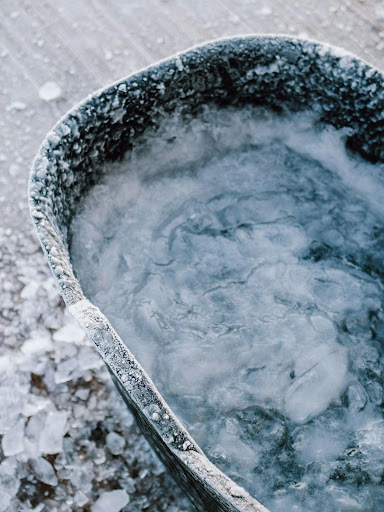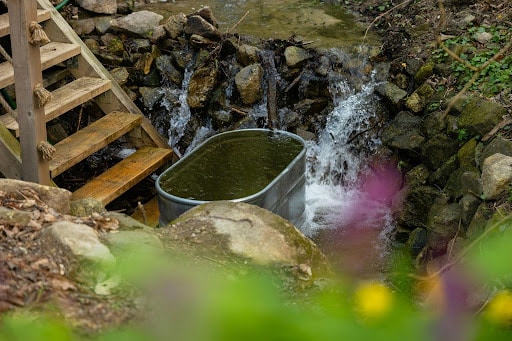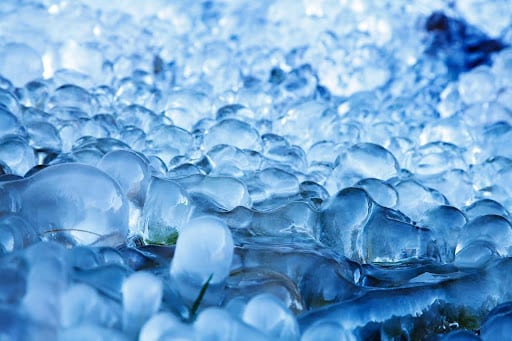
Cold plunging has become very popular lately, due to its ability to reduce inflammation, boost energy, improve your immune system and more! This comprehensive guide will thoroughly explore the health benefits of cold plunging. By the time you’re done reading, you’ll be seeking out a cold-plunge center!
What exactly is cold plunging?
Before we get into the benefits, let’s take a moment to discuss what cold plunging actually means. Essentially, it means plunging yourself into cool or cold water for at least 30 seconds. The water shouldn’t have a higher temperature than 50 degrees Fahrenheit, but it’s commonly much colder than that. If you’ve ever seen a polar bear plunge or participated in the ice bucket challenge, then you’ve gotten a taste of what it means to go cold plunging.
A group of people that are quite famously associated with cold plunging are athletes. It’s extremely common to see an athlete in a tub full of ice after a game. That’s because they’ve known about the benefits of this practice for a long time, and they use it to reduce soreness and inflammation.
Cold-Plunge Benefits
Unlike other trends, there is actually a lot of evidence to back up the idea of doing a cold plunge. Therefore, if you decide to participate in only one healthy but freezing cold way to help your body, be sure to make it cold plunging.
1. Enhances mood and focus
Cold plunging has the ability to make some people focus better. As sports medicine physician Dominic King, DO, pointed out, it may seem like “a very helpful mental meditation.” Furthermore, it’s also a good way to activate your nervous system, which can have positive benefits on your mood and overall mental health.
How does this work? When your body hits the cold water, it releases adrenaline in your body. Additionally, it leads to a significant increase in your dopamine levels. Dopamine is known as the feel-good hormone, so this is naturally a fantastic way to boost your mood.
2. Reduces inflammation and soreness
When you suddenly introduce cold water to your body, it will begin to produce anti-inflammatory markers. This also plays into the fact that your body will feel less sore after cold plunging.
Dr. Tracy Zaslow of the Cedars-Sinai Kerlan-Jobe Institute indicated that “when you’re in cold water, your blood vessels constrict so there’s less blood flow to the area, then there’s less swelling and inflammation leading to less pain.” In other words, by reducing your blood flow, you can help speed up the healing process.
As previously mentioned, athletes tend to be big fans of taking an ice-cold bath. For example, Jamaican runner Usain Bolt and Portuguese soccer player Cristiano Ronaldo frequently rely on ice cold baths to help keep them at the top of their game. They do this to ward off inflammation and make their muscles heal more quickly.

3. Improves power in energy
Another way that a cold plunge can help your body is by giving you more energy. How does this work? By stimulating the release of norepinephrine, adrenaline and endorphins, all of which are known to boost energy levels. Additionally, these hormones will enhance your alertness.
4. Improves immunity
When you have exposure to cold plunging, it will increase your digestion by making you shiver. In turn, this will increase your immune response through the rapid constriction of your blood vessels. Other proven ways to boost your immune system include being physically active, getting enough sleep, eating well, not smoking, maintaining a healthy weight and avoiding alcohol.
Your immune system is the way your body fights off foreign organisms. Having a better immune response can mean the difference between battling a summer cold or not getting sick at all. Therefore, if a short cold plunge can help you boost your body’s response to germs, it sounds more than worth it!
5. Builds resilience of body and mind
Jumping into a freezing cold body of water isn’t something to take lightly. If you can do it, though, you’ll build your resiliency, plus boost your ability to adapt to uncomfortable conditions. This is a good way to make you more mentally and physically prepared for any situation you might encounter.
Something else to take note of is that cold-plunging will decrease your cortisol levels. If you’re prone to feeling stressed out, this may be the answer you’ve been looking for. This particular benefit lasts for much longer than your cold plunge, too. Studies indicate that a single 15-minute plunge in cold water can keep your cortisol levels lower for up to three hours!
Overall, the shock to your system teaches mental toughness and self-control, while the shock to your body stimulates endurance. To achieve the best results, it’s important to give your body time to adjust to the major temperature difference. For instance, your first cold plunge might not last longer than 30 seconds, and that’s okay. However, with repeated exposures, you should be able to work your way up to an extensive cold plunge of 15 minutes or longer.
6. Builds metabolism
Cold plunging wakes up every feature of the body. For instance, it can build up your metabolism, which will help you lose weight. This happens due to the effect of cold water on your physiology. To gain a better understanding of this process, we can look at what drinking cold water does for your system. Although seemingly insignificant, choosing to drink cold water instead of room temperature water allows you to burn eight more calories.
Why does this difference exist? Because your body has to work harder to increase the water temperature to match your body temperature. When you consider how much harder your body would have to work to keep your core body temperature to at least 97 degrees while sitting in ice cold water, it’s easier to appreciate the impact it can have on your overall body.
7. Makes you sleep better
A side benefit of reducing stress is that taking a cold plunge also has the power to make you sleep better. You see, when your stress and anxiety levels are high, your mind can get into a continual loop of almost obsessing over things that bother you. In fact, your mind can even go back several decades and replay embarrassing moments, which isn’t exactly conducive to getting a good night’s sleep.
Some people feel much more mental clarity after cold-plunging, and this enables them to sleep better. Southwestern Vermont Medical Center’s Laurie Darby, RN, is definitely a believer. She said that she “hate[s] the cold,” but it helps her sleep better. She elaborated by saying “I don’t know if my mind is ever stress-free, but if I don’t take a cold plunge for a couple of days, I can tell.”

8. Improves insulin sensitivity
Whether you’re suffering from type 2 diabetes or have been diagnosed as pre-diabetic, it might be in your best interests to adopt a regular cold-plunging schedule. There is actually some evidence that submerging yourself in cold water can provide even more benefits for insulin sensitivity than exercising. Of course, exercising and cold plunging are the best way to boost your overall insulin sensitivity levels.
To receive optimal results, it’s necessary to stay in cold water until your body has begun to shiver. When you shiver, it activates your muscles in a way that is similar to working out. This changes your body’s insulin sensitivity response for up to 48 hours, which suggests that cold-plunging every other day could provide real, noteworthy benefits to diabetes sufferers.
9. Improves heart health
In 2016, a study was conducted to determine the effects of taking a cold shower. Participants took a hot shower with intervals of coldness that lasted 30, 60 or 90 seconds. The results showed great promise in using cold therapy to improve heart health. The benefits didn’t just impact one factor about cardiovascular health, either. Instead, cold plunging seems to provide at least three different benefits to help your heart, including reducing your heart rate, boosting your blood flow and improving your overall cardiovascular health.
Another group of researchers from the University of Oregon studied the impact of a 15-minute cold immersion session on heart health. They found that after a single session, an ultrasound recorded changes in the participant’s shear stress. In other words, the cold plunge put a higher level of force on their blood, and this increased shear stress on the affected blood vessels.
Is there anyone who shouldn’t take a cold plunge?
As with almost everything in life, there are some people who are not good candidates for a cold plunge. Interestingly, however, some of these individuals could also receive great benefits from taking well-monitored plunges. Therefore, even if you have one of the conditions listed below, you might still want to discuss cold plunging with your doctor. Only they have access to your health records, which means that they’re in the best position to give you a definitive yes or no.
- High blood pressure
- Heart disease
- Peripheral neuropathy
- Diabetes
- Venous stasis
- Poor circulation
- Cold agglutinin disease
What about using a cold river?
Polar bear plunges might seem like a good alternative to an ice bath, but they come with heightened risks. When you’re relaxing in an ice bath like your favorite athlete, you can get yourself to safety much more quickly than if you’re in a lake or river and something goes wrong. Be aware of the following potential complications.
Hypothermia
Hypothermia can set in relatively quickly. Therefore, keep yourself safe by avoiding a big body of water. You could get pulled away by a current, and it might become impossible to get yourself out until after you’ve got hypothermia.
Hyperventilation
Again, the risk of hyperventilating makes it much safer to use an ice bath for your cold plunge. Cold water could tighten your airways, which will make it harder to breathe. If you’re in an ice bath, you can simply hop back out.
Drowning
This is another potential risk that’s typically associated with a lake or river. If you take a cold plunge in a partially frozen lake, for example, you could get sucked beneath the ice and drown. Using an ice bath prevents this issue.
Is a cold plunge right for you?
As long as you’ve in good physical shape, taking a cold plunge can help you deal with several different issues. Although you’ll want to use an actual cold bath to do them on a regular basis, you can test out the basic idea by taking a cold shower. If doing so makes you feel more energetic, makes you feel less sore or gives you a mental boost, it’ll be easy to keep gaining these benefits by investing in cold bath technology.